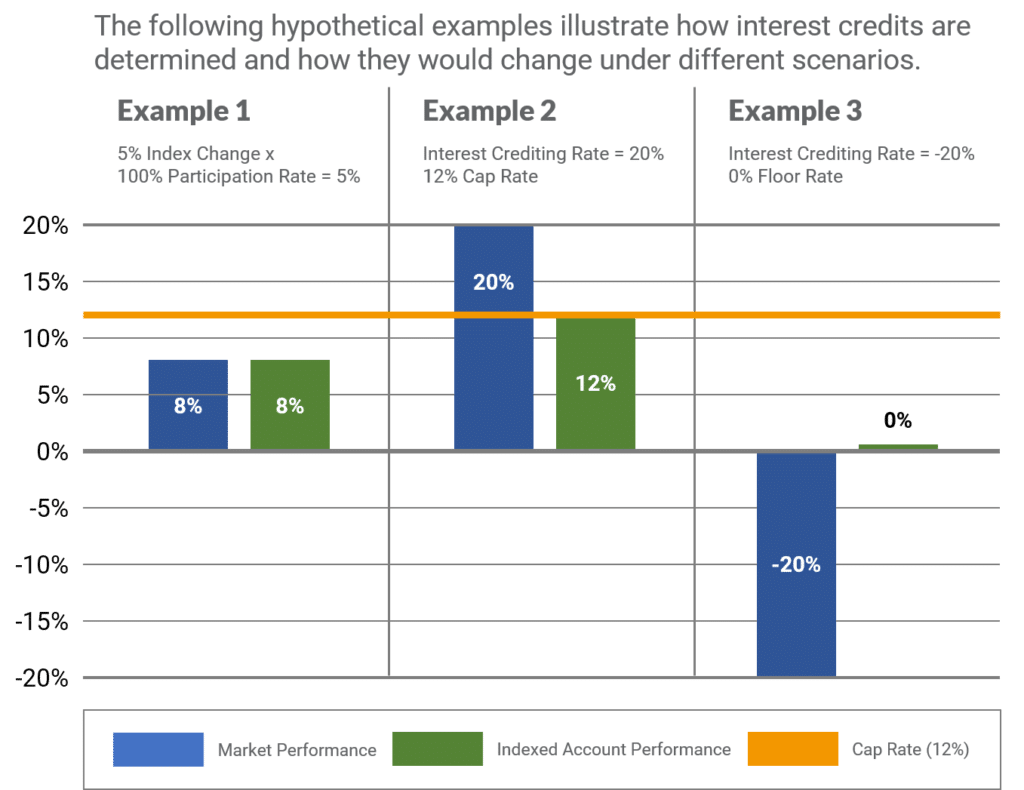All Categories
Featured
Table of Contents
1), frequently in an effort to beat their classification averages. This is a straw male disagreement, and one IUL folks like to make. Do they compare the IUL to something like the Vanguard Overall Supply Market Fund Admiral Show to no tons, an expenditure ratio (ER) of 5 basis factors, a turnover proportion of 4.3%, and an extraordinary tax-efficient record of distributions? No, they compare it to some awful actively handled fund with an 8% lots, a 2% EMERGENCY ROOM, an 80% turnover proportion, and an awful record of temporary resources gain circulations.
Mutual funds commonly make yearly taxed distributions to fund owners, also when the value of their fund has actually dropped in worth. Shared funds not only need earnings reporting (and the resulting annual taxes) when the mutual fund is going up in worth, yet can likewise enforce earnings taxes in a year when the fund has actually gone down in worth.
You can tax-manage the fund, collecting losses and gains in order to decrease taxed distributions to the financiers, but that isn't in some way going to change the reported return of the fund. The ownership of shared funds may require the mutual fund proprietor to pay estimated taxes (fixed indexed life insurance).

IULs are very easy to position so that, at the proprietor's death, the beneficiary is not subject to either earnings or inheritance tax. The very same tax obligation reduction strategies do not function nearly also with mutual funds. There are countless, frequently costly, tax obligation catches connected with the moment buying and marketing of shared fund shares, traps that do not use to indexed life Insurance policy.
Possibilities aren't extremely high that you're mosting likely to go through the AMT as a result of your common fund distributions if you aren't without them. The rest of this one is half-truths at finest. For example, while it is real that there is no income tax because of your heirs when they inherit the earnings of your IUL plan, it is additionally true that there is no revenue tax obligation as a result of your beneficiaries when they acquire a common fund in a taxable account from you.
Iul Annuity
There are better ways to avoid estate tax issues than getting investments with low returns. Mutual funds may create earnings tax of Social Protection benefits.

The development within the IUL is tax-deferred and may be taken as free of tax earnings by means of car loans. The policy proprietor (vs. the shared fund manager) is in control of his or her reportable revenue, therefore enabling them to decrease or perhaps eliminate the tax of their Social Protection advantages. This is great.
Below's one more marginal issue. It's real if you get a shared fund for claim $10 per share prior to the distribution day, and it disperses a $0.50 circulation, you are then going to owe tax obligations (possibly 7-10 cents per share) although that you haven't yet had any type of gains.
But in the end, it's actually about the after-tax return, not how much you pay in taxes. You are going to pay more in tax obligations by utilizing a taxed account than if you get life insurance. Yet you're additionally probably going to have more money after paying those taxes. The record-keeping demands for having mutual funds are considerably more intricate.
With an IUL, one's documents are kept by the insurance firm, duplicates of annual statements are mailed to the proprietor, and distributions (if any type of) are totaled and reported at year end. This is additionally sort of silly. Obviously you need to maintain your tax obligation records in instance of an audit.
Guaranteed Universal Life Insurance Companies
All you have to do is shove the paper right into your tax obligation folder when it reveals up in the mail. Barely a reason to acquire life insurance policy. It's like this guy has never spent in a taxed account or something. Shared funds are typically part of a decedent's probated estate.
On top of that, they are subject to the delays and expenses of probate. The proceeds of the IUL plan, on the other hand, is always a non-probate circulation that passes outside of probate straight to one's named recipients, and is as a result not subject to one's posthumous financial institutions, undesirable public disclosure, or comparable delays and costs.
We covered this one under # 7, but just to wrap up, if you have a taxed shared fund account, you need to put it in a revocable depend on (or perhaps much easier, utilize the Transfer on Fatality classification) to avoid probate. Medicaid incompetency and life time revenue. An IUL can offer their proprietors with a stream of earnings for their entire lifetime, no matter the length of time they live.

This is beneficial when organizing one's affairs, and converting properties to earnings prior to an assisted living facility arrest. Mutual funds can not be transformed in a similar way, and are usually considered countable Medicaid assets. This is an additional foolish one promoting that inadequate individuals (you understand, the ones who need Medicaid, a federal government program for the bad, to pay for their retirement home) need to utilize IUL instead of common funds.
Survivorship Life Insurance Quote
And life insurance policy looks horrible when contrasted fairly versus a pension. Second, people who have cash to buy IUL above and beyond their pension are mosting likely to need to be dreadful at handling cash in order to ever before get approved for Medicaid to pay for their retirement home expenses.
Chronic and terminal disease rider. All policies will certainly allow a proprietor's simple access to money from their policy, commonly forgoing any type of abandonment fines when such people endure a major health problem, need at-home care, or become confined to an assisted living facility. Common funds do not provide a similar waiver when contingent deferred sales charges still use to a shared fund account whose proprietor requires to sell some shares to money the prices of such a keep.
Dow Jones Life Insurance Index
Yet you obtain to pay more for that benefit (rider) with an insurance coverage. What a large amount! Indexed universal life insurance policy gives death advantages to the beneficiaries of the IUL proprietors, and neither the owner neither the beneficiary can ever lose cash as a result of a down market. Mutual funds offer no such warranties or survivor benefit of any kind.
I definitely do not need one after I get to monetary self-reliance. Do I desire one? On standard, a purchaser of life insurance policy pays for the real cost of the life insurance advantage, plus the prices of the policy, plus the profits of the insurance policy firm.
Is An Iul A Good Investment
I'm not completely certain why Mr. Morais tossed in the entire "you can not shed money" again below as it was covered fairly well in # 1. He simply wanted to duplicate the most effective selling point for these points I intend. Once again, you don't lose nominal dollars, but you can shed real dollars, in addition to face serious chance cost as a result of reduced returns.

An indexed global life insurance plan proprietor might exchange their policy for an entirely various plan without activating revenue taxes. A mutual fund owner can not move funds from one common fund firm to another without selling his shares at the previous (thus setting off a taxable occasion), and repurchasing brand-new shares at the latter, often based on sales fees at both.
While it holds true that you can exchange one insurance plan for another, the reason that individuals do this is that the first one is such an awful plan that also after acquiring a brand-new one and going through the very early, unfavorable return years, you'll still appear ahead. If they were sold the ideal policy the very first time, they shouldn't have any type of need to ever before trade it and go via the early, adverse return years once more.
Latest Posts
Difference Between Whole Life Vs Universal Life
Universal Life Insurance Phone Number
Life Insurance Flexible